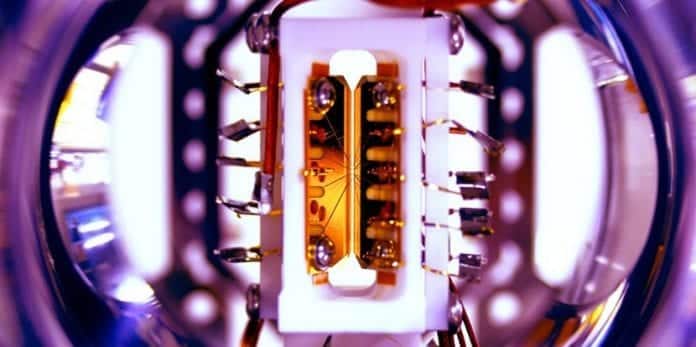Debnath calls it a fundamental building block en route for large scale devices.
Its really the flexibility that we are aiming towards and we have done, he said.
Debnath explains: We demonstrated this by implementing four different algorithms and we are running more right now.

In trapped ions, or any other computing platform, this had not been done before.
The machine is made up of five pieces of quantum information known as qubits.
Quantum computing holds the logic of superpositions which divides it from traditional computers.

This means that atoms, for example, can swirl in two opposite directions at the same time.
That kind of superposition makes quantum computing fundamentally different from traditional computers.
This enables a qubit to basically perform two calculations at the same time.
However, this new unit is diverse and easily programmable.
Researchers are now working on the next step which is to shrink the system to make it more compressed.
The next step is to miniaturise the system; to come up with a compact version, Debnath explains.
Also, to scale it up and have more qubits in the processor.
The research has been published inNature.
Source: WIRED
Read More
source: www.techworm.net